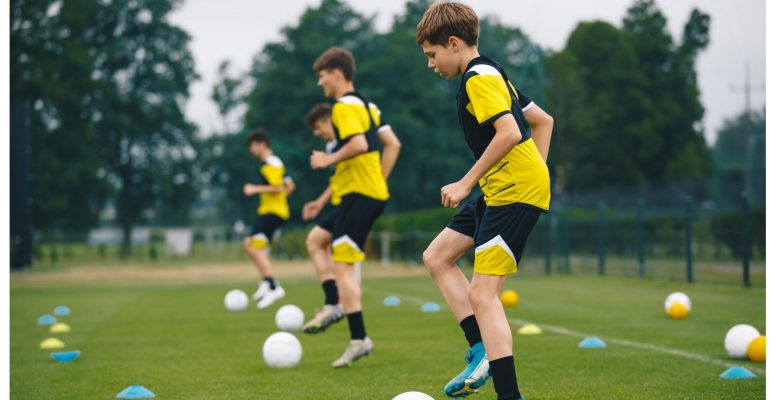
Promoting Good Mental Health in Adolescents Through Sports: A Parent’s Guide
Written By: Sarah Glass, Clinical Trainee at ACS, On-Campus Counseling Program
ADOLESCENTS INVOLVEDin sports stand to gain more than just physical fitness—they can develop essential life skills like teamwork, perseverance, and self-confidence. However, for these benefits to truly take hold and foster good mental health, it’s crucial for parents to support their children in ways that prioritize emotional well-being over external achievements like winning or trophies. It’s not just about attending games; it’s about ensuring that sports remain a positive and fulfilling part of your child’s life.
Focusing on Fun for Mental Health
At the core of any adolescent’s positive experience in sports is fun. Research consistently shows that “fun and intrinsic motivation are the most reported reasons children participate in sport” (Erdal, 2020). Fun is what draws adolescents to the field and keeps them coming back. This is significant because enjoyment is directly linked to mental well-being—when sports are fun, they serve as an outlet for stress relief, social bonding, and personal growth, all of which contribute to better mental health.
Defining Success Beyond Winning
While it’s natural for parents to want their kids to excel, focusing solely on winning can add unnecessary pressure and detract from the mental health benefits sports can offer. True success in sports is about growth, effort, and self-improvement. As research indicates, “success in children’s sport is about self-improvement and effort, not about winning and losing” (Erdal, 2020). By shifting the focus away from competition and towards personal development, parents can help their children maintain a healthier mindset, fostering resilience and confidence that extends beyond the playing field.
Encouraging Intrinsic Motivation for Mental Resilience
One of the most significant challenges parents face is the temptation to use rewards, such as trophies or praise for winning, to motivate their children. However, research shows that extrinsic motivators can actually diminish a child’s intrinsic love for the game and negatively impact their mental well-being (Breiger et al., 2016). “Adults have succeeded in overriding the only necessary and sometimes sufficient means of keeping children involved in sport… by converting it into extrinsic motivation with medals and trophies” (Erdal, 2020). Instead, parents should nurture intrinsic motivation by encouraging their child’s love for the game, their excitement to learn new skills, and the joy of being part of a team. This kind of motivation builds mental resilience, as adolescents learn to find satisfaction in the process rather than in external rewards.
Social Connections and Emotional Support
Sports offer adolescents not just physical benefits, but also crucial social experiences. Friendships formed through sports are a powerful protective factor for mental health, providing emotional support and a sense of belonging. Research shows that friendships built through sports are a key factor in keeping adolescents engaged and reducing the likelihood of dropout (Erdal, 2020). By emphasizing the importance of these relationships, parents can help their children develop strong social bonds, which are essential for good mental health.
Promoting good mental health through sports requires parents to focus on what truly matters: fun, personal growth, and positive social connections. By creating a supportive, low-pressure environment, parents can ensure their children not only stick with sports but also experience the emotional and mental benefits that come with healthy participation. This approach allows sports to be a source of joy, resilience, and well-being for adolescents.
___________________________
References
Breiger, J., Cumming, S., Smith, R., & Smoll, F. (2015). Winning, motivational climate, and young athletes’ competitive experiences: Some notable sex differences. International Journal of Sports Science and Coaching, 10(2-3), 395-411.
Erdal, K. (2020). The Adulteration of Children’s Sports: Waning Health and Well-being in the Age of Organized Play. Lexington Books.
